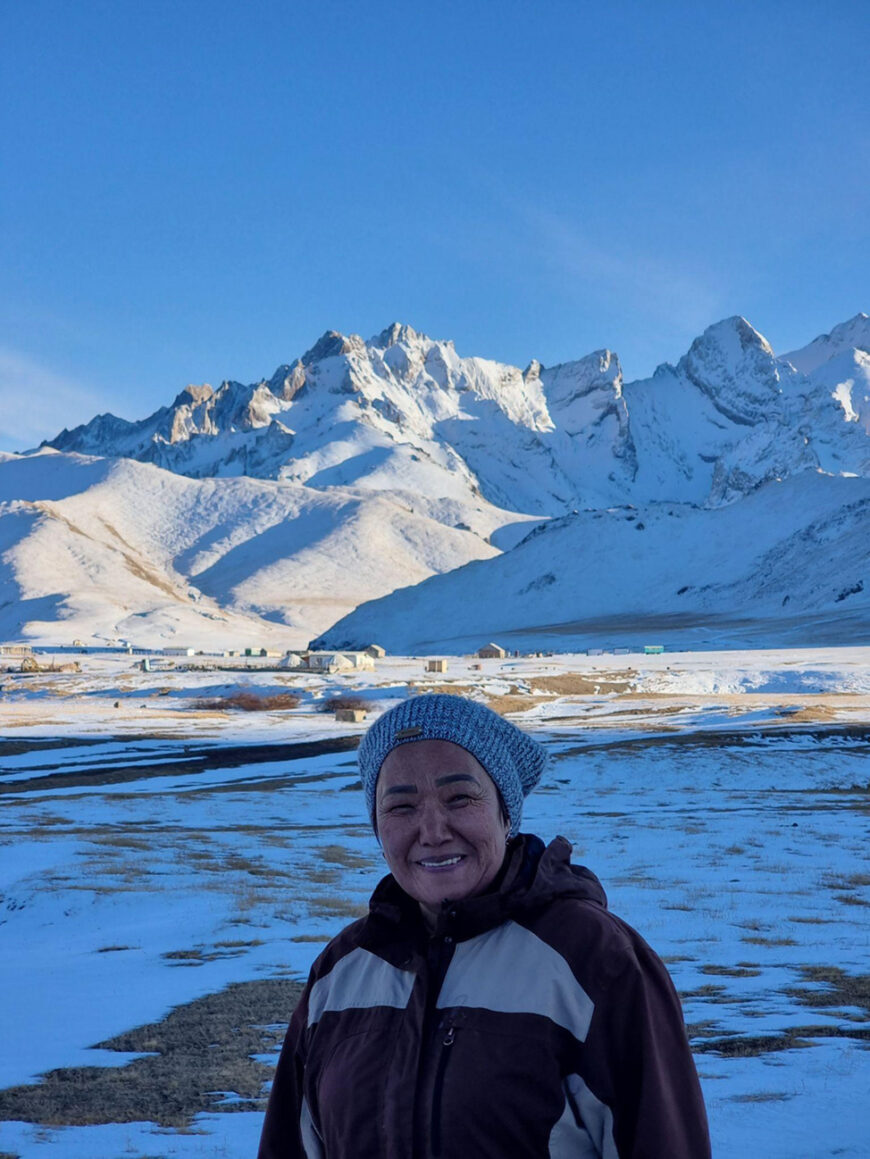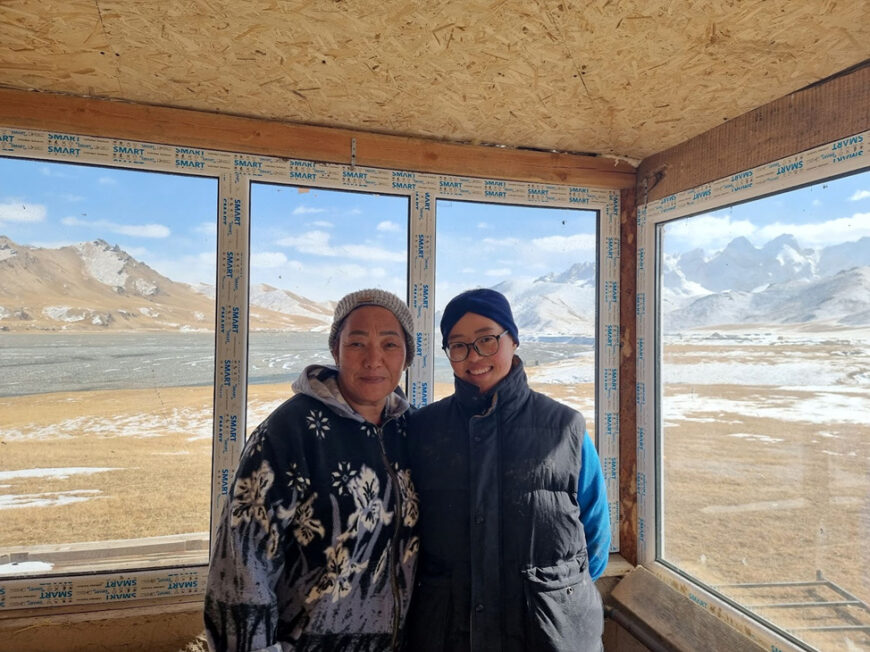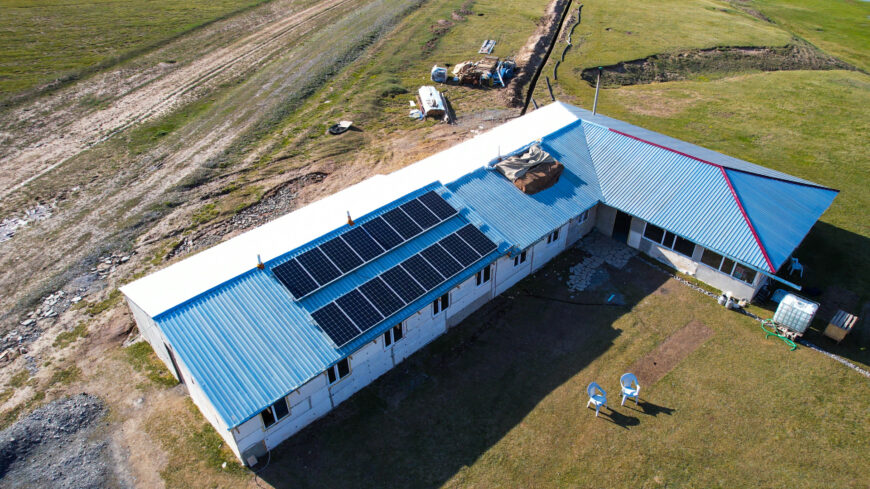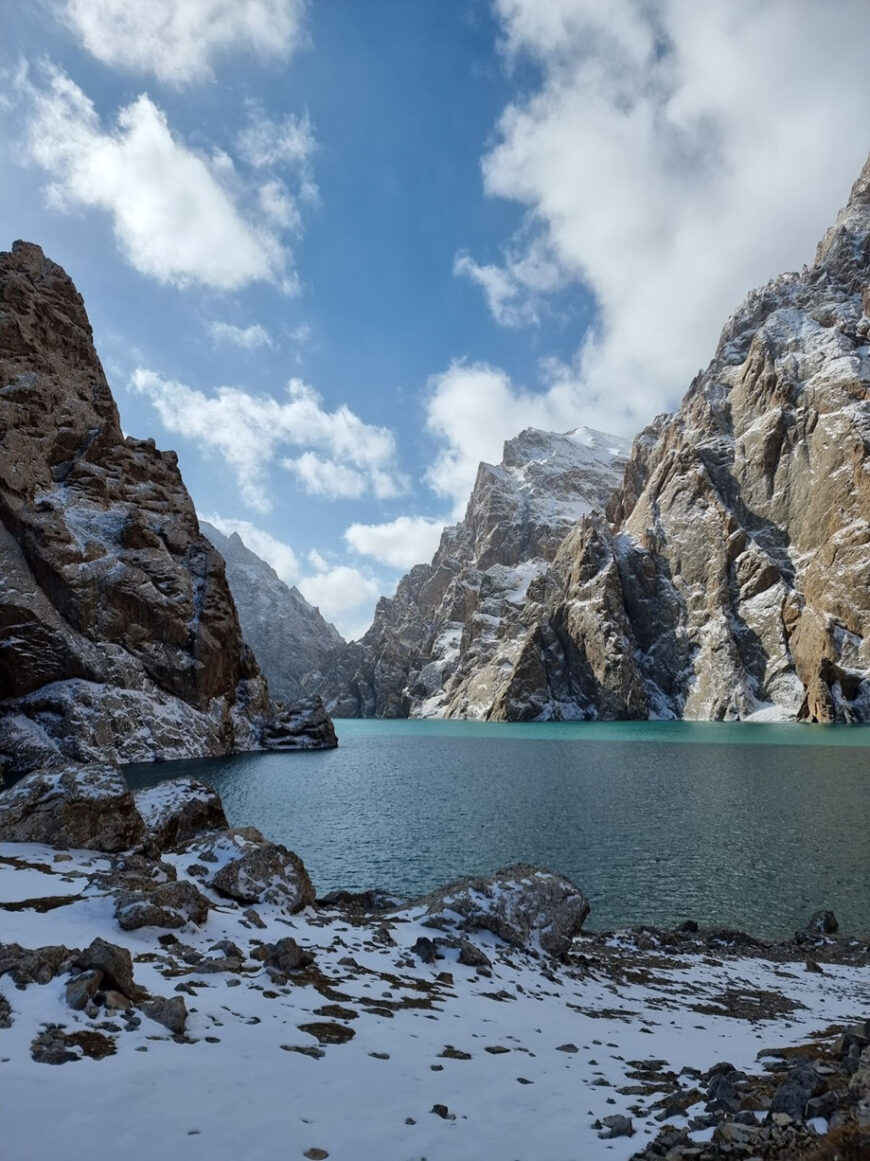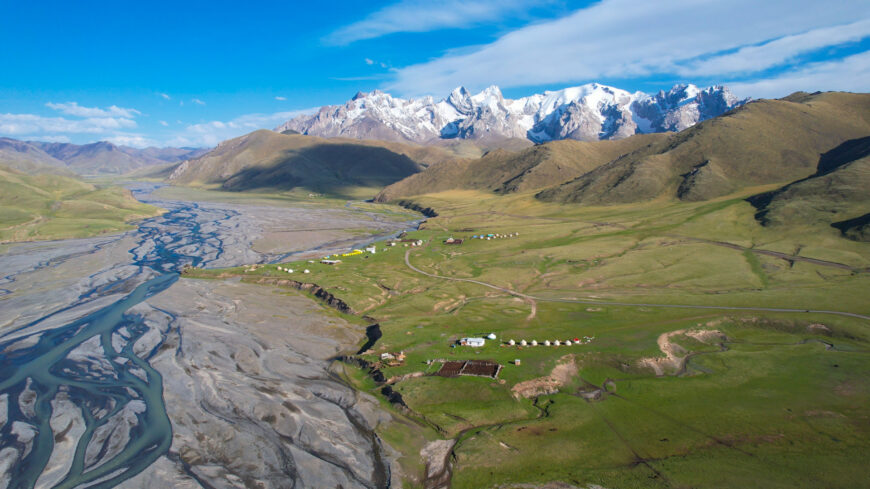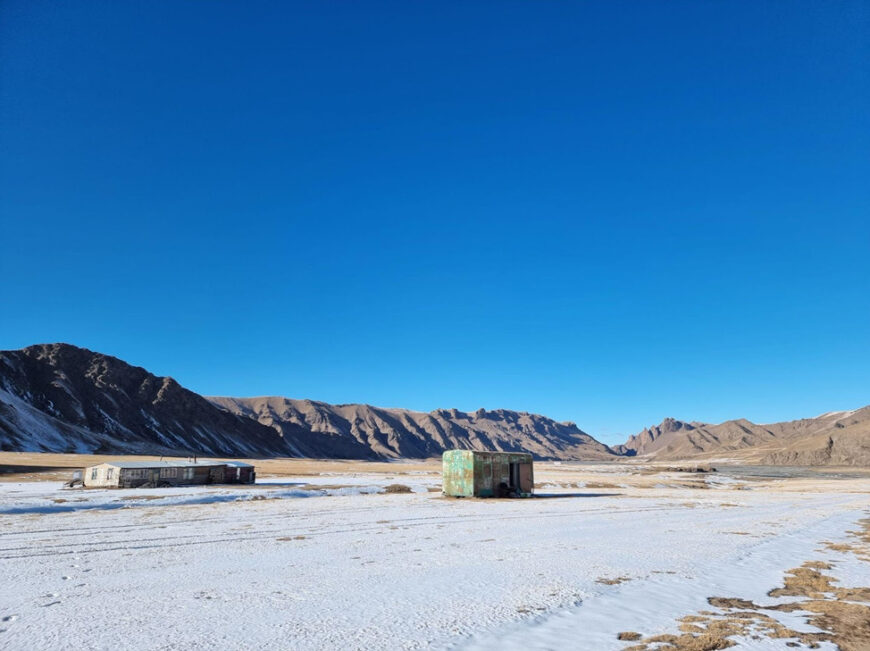Jyrgal Omurakunova has been running her family yurt camp for eight years ever since she brought the first tourists to Kol-Suu Lake. Initially, people did not believe the area would be suitable for tourists, given the harsh weather conditions, border controls, and the local focus on animal husbandry. Yet now, there are more than 90 yurts, 20 of which belong to Jyrgal.
We had more tourists visiting Kol-Suu than Son-Kol or Tashrabat (in 2022). Every family in Naryn now has five or six people in tourism. Young people are bringing kayaks to make more money... shepherds double as tour guides and rent their horses for a certain fee, others from the closest town come as drivers. Some did not even speak Russian before, and now they want to learn English. My eldest daughter speaks English well and we used to depend on her; you could always hear someone calling her name, asking for help. But now all my girls speak English and I am learning too.
However, the inflow of tourists has placed fresh demands on service providers and on the fragile eco-system in this pristine and unique mountainous area.
Jyrgal explains how her first tourists “slept on the floor and ate simple meals, but now we have a kitchen that can serve more than 30 people in the evenings. I remember our first vegetarian guests; Kyrgyz food consists mostly of meat, so we only gave them potatoes! Now, after many courses, I know how to make vegetarian food. My guests always say that such a beautiful place should have luxurious hotels, and they wonder why we don’t even have electricity. I always say that we are a young country, but I agree that if we had electricity, we could have hot showers in each room. But our generators simply can’t do it. We bring water, 600 or 700 liters, from the closest reservoir, which is hard work, and we use it up in a couple of days.”
To make the business more sustainable and climate friendly, Jyrgal started looking for solutions.
Sustainable growth
Jyrgal has since been actively participating in Acted’s Set to Switch project funded by the SWITCH-Asia facility of the European Union. Jyrgal and her staff had the opportunity to improve their knowledge and networks by taking part in trainings on topics such as sustainable consumption and production practices, eco-standards, renewable energy and energy-efficient technologies, responsible borrowing and green investments. Moreover, following an energy audit of her business, Jyrgal and the project jointly invested in a solar power and water heating system to provide year-round electricity and hot water, helping her business to transition away from burning coal and using diesel generators, thereby greatly reducing their carbon footprint and impact on the local environment.
The road ahead
Jyrgal’s yurt camp was fully revamped for the 2023 season. Made from ecological materials, the new winter guest house can accommodate up to 36 guests and will be powered by solar panels year-round. This green transition also creates jobs; Jyrgal employed eight people in 2022 but could bring in fifteen people already in 2023 as well as three construction workers.
“I have been in the region for 20 years, my sister used to live here and I am from Naryn myself, so I guess it is patriotic of me. I am pleased that I am helping the region and its people to earn money. I believe Kol-Suu will become the heart of this area.”
